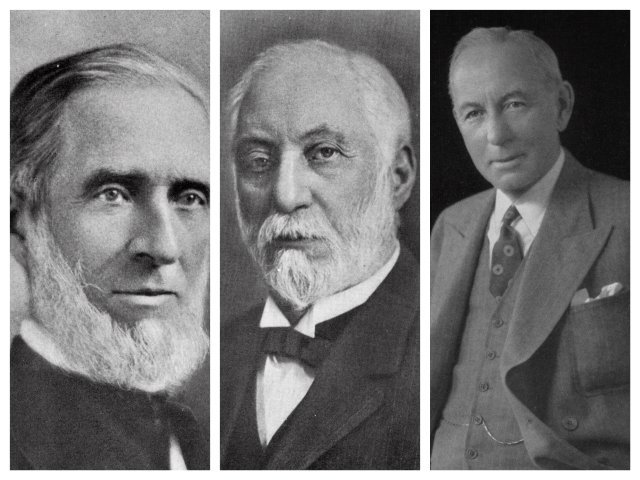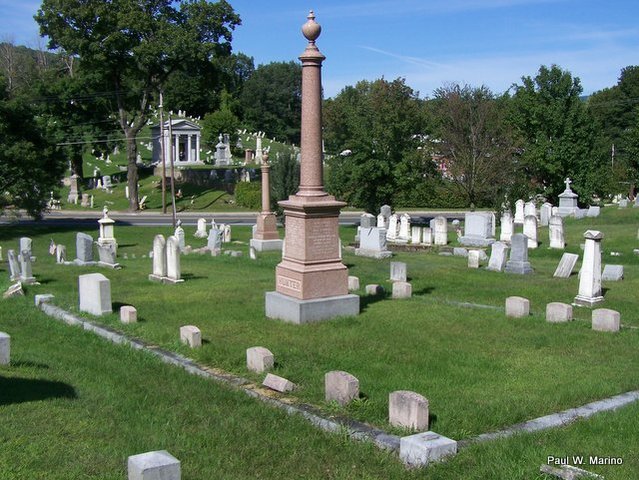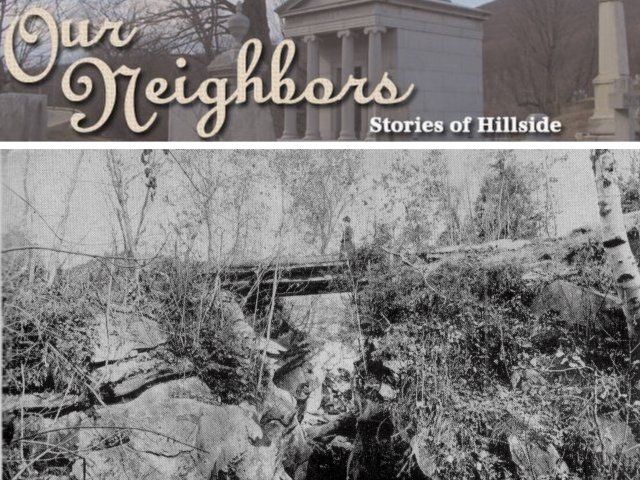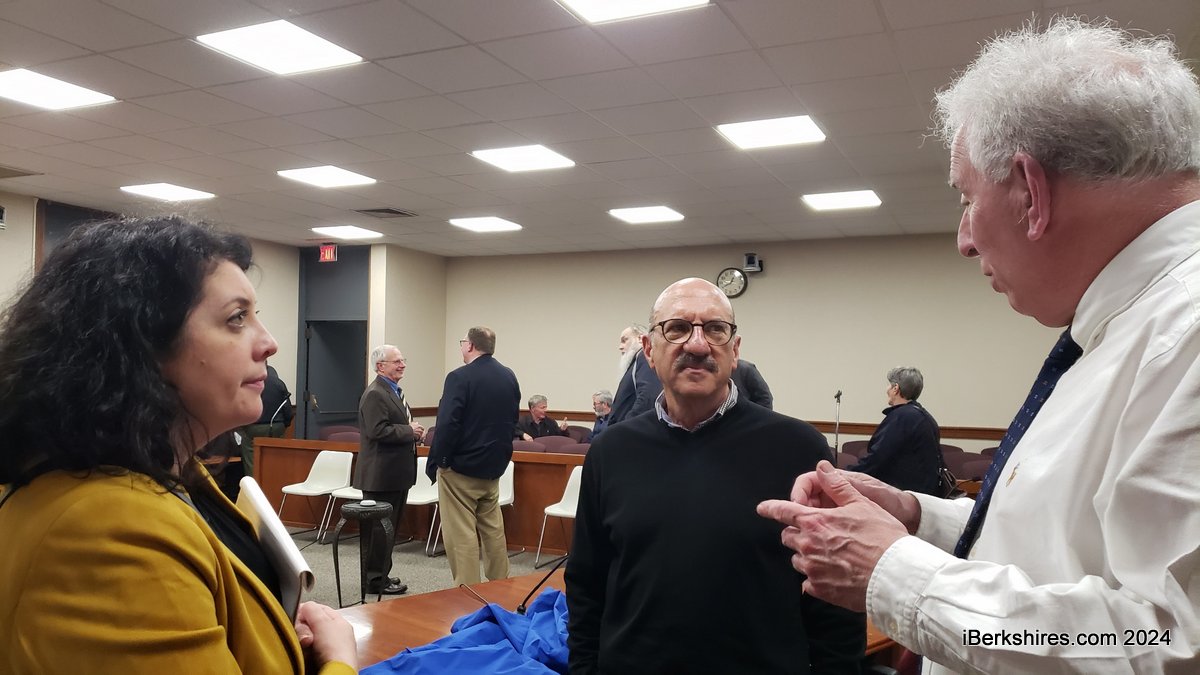

Our Neighbors: The Tragic Fall of Robert Hunter
 A woman walks across the Natural Bridge ravine circa 1896. A woman walks across the Natural Bridge ravine circa 1896. |
NORTH ADAMS, Mass. — The story of the Hunter family is largely one of triumph: circa 1842, Deacon James Hunter, with his son James Erwin Hunter, started James Hunter Machine Co.
Over its 130-year history, five generations of James Hunters ran the company (now Morrison Berkshire) and brought it into international prominence.
The Hunters themselves were known for their generosity, giving to the North Adams Hospital, the arts and their church. Go into First Congregational Church and you can see the Tiffany window given by the Hunters and hear the organ donated by James D. Hunter. Go in Massachusetts Museum of Contemporary Arts and you can see many diverse types of performances and programs in the Hunter Center, its construction paid for by the Hunter family.
But the story of Robert Hunter is not one of triumph. Rather, it is a tragedy.
Born in 1880, Robert was the youngest son of James Erwin Hunter and the baby brother of James D. Hunter. He has been described as "a bright, intelligent boy whose happy disposition won the love alike of playmates and older people with whom he came in contact. He was naturally observing and had just reached an age when he was deeply interested in the remarkable things he saw around him. He was the youngest member of the family and the especial favorite of his brothers and sisters."
On a fine spring day in April 1891, Robert and four friends went on an outing to go fishing and pick wildflowers. On their way home, they went slightly out of their way to visit Natural Bridge. And it was there that they happily set the tragedy in motion: They decided to walk along the top of the penstock.
A penstock is a pipe — in essence, an enclosed raceway, carrying water from a reservoir to a mill. In this case, the pipe is about 12 inches in diameter, enclosed in an octagonal sleeve of cement. In Robert's day, it ran from the marble dam to the stone-cutting mill down near the road that runs up from Route 8. While much of the penstock is now gone, a section of it remains over the gorge.
 A section of the old penstock that provided water power for a stone-cutting mill still runs over the gorge. A section of the old penstock that provided water power for a stone-cutting mill still runs over the gorge. |
While today it would be considered suicidal — or plain stupid — to walk on such a thing, it was in fact used by thousands of visitors to the site, who used it to get the best view of the gorge. From a certain position on the penstock, one could look straight down to the stream 50 feet below. Two of the boys walked across it and admired the view. Then it was Robert's turn. The North Adams Transcript's account says he became dizzy; it may be that he was careless and lost his footing. But in any event, he fell into the gorge and was killed almost instantly.
Exhibiting a rare presence of mind, the remaining four boys divided themselves into two groups; two of them remained where they were and the other two went for help, telling all and sundry that they met. Before long, a large number of men converged on the gorge to look for the body. The search went on all day and through the night, hindered by a torrential rain that turned the stream — already swollen with snow melt — into a raging torrent.
The rain ceased at 7 p.m. and the work continued by lantern and torchlight. Robert's remains were found shortly before dawn, wedged under an overhanging ledge of rock down near the mill. He was buried in the lot established by his grandfather, under a red marble tablet inscribed with his initials.
This series is an attempt to help us get to know a particular community of neighbors, without whose vision and efforts this city would not exist. These neighbors are the residents of Hillside Cemetery. As part of our effort to restore and maintain this, the city’s oldest municipal cemetery, we hope to generate interest, funding and volunteer labor in an effort to restore it. This work is an important step in maintaining our city's heritage and civic pride. But more than this, it's a way in which we can help our neighbors; neighbors who laid the foundations of North Adams and paved the way for us.
Tags: hillside cemetery, historical figure, our neighbors,
















